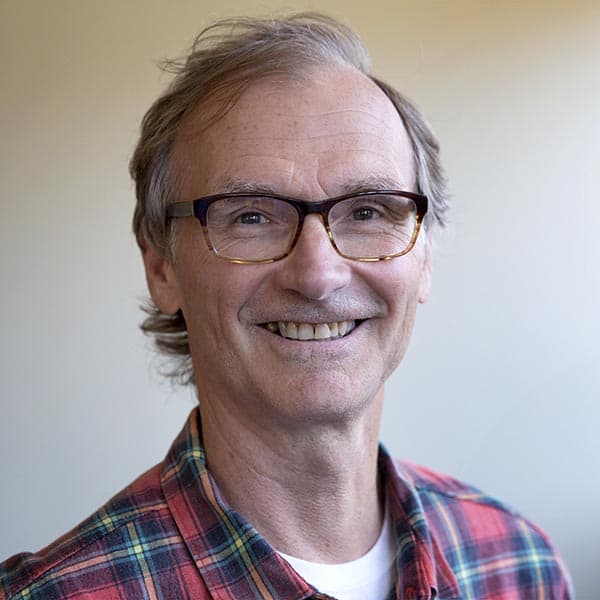Advertisement
Commentary
Reporter's Notebook: The Boston Marathon That Wasn't
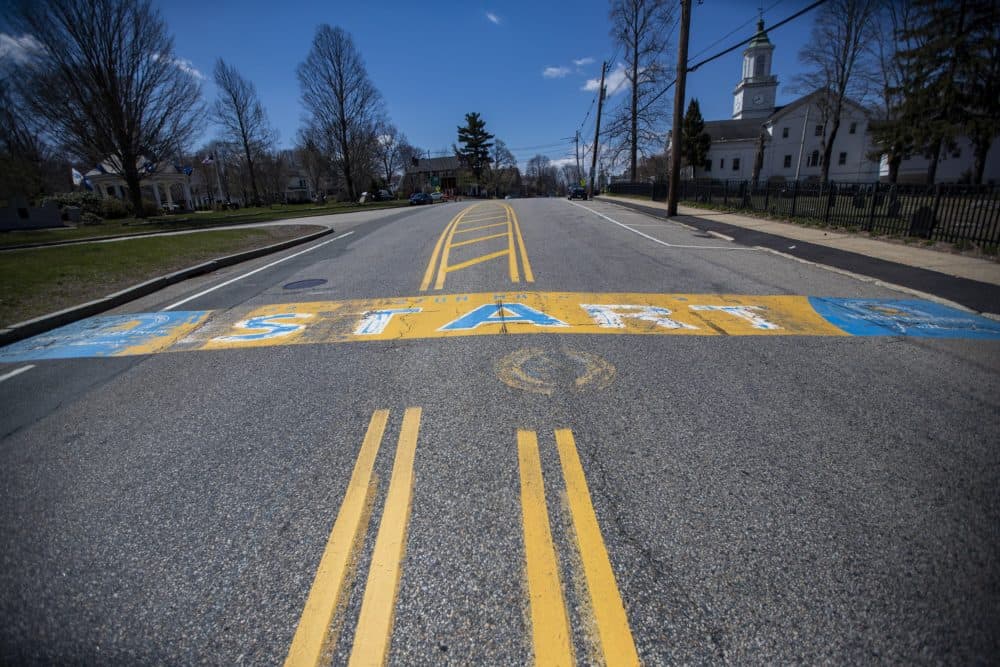
There were two reasons I wanted to come to work at WBUR more than two decades ago. For one thing, I thought it was the best public radio station in the country. But the other reason was the Boston Marathon.
Among the people I ran with in Urbana, Illinois, where I worked for the University of Illinois public radio station WILL in the 1980s and 90s, we were always talking about Boston's race. It was so iconic and historic.
When I was hired as the senior producer of Morning Edition, one of the first things I did was start planning to cover the marathon for my new station. That was in 1998 and I've covered the famous race on every Patriots Day since.
Until this year.
The Boston Marathon, like countless other sporting events around the world, has fallen off the current calendar because of the global coronavirus pandemic. The marathon has been rescheduled for Monday, September 14. You could be forgiven for wondering if that will even happen, but that uncertainty can occupy another day. My thoughts are about what's being missed right now, today.
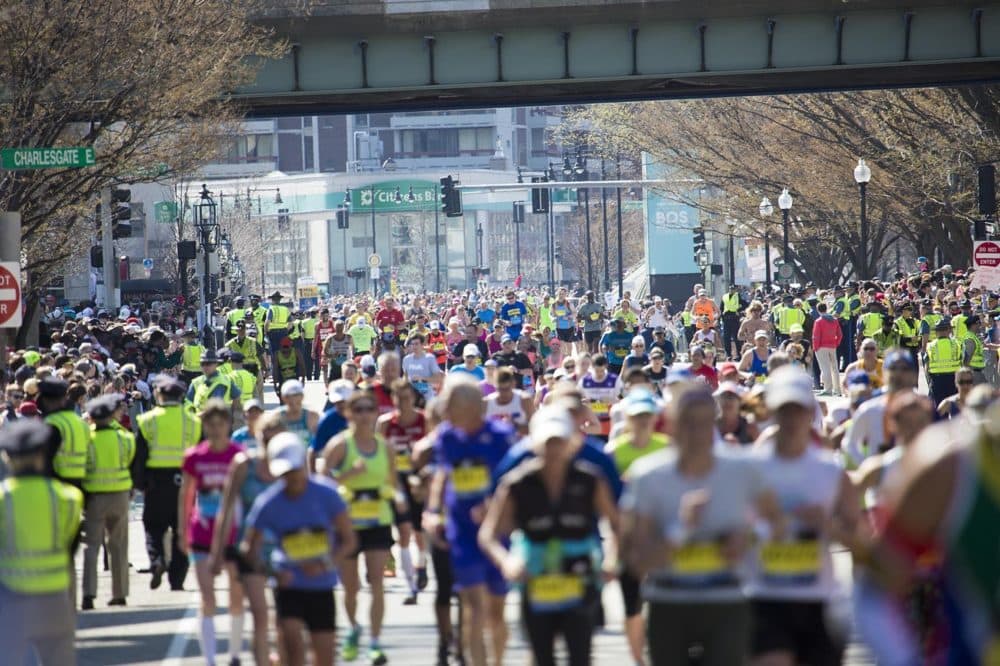
The Boston Marathon pumps millions of dollars into the local economy. Runners raise millions for charities. This will no doubt be the case in September if the race happens, but I wonder if it will feel the same five months from now. The Patriots Day marathon has been a tradition here for more than 100 years. Marathon weekend has always seemed to be about a new beginning, much like the historical event it honors, the Shot Heard Round The World. The city teems with springtime energy.
One of my favorite things is to go to the finish line the Saturday before the marathon. Men and women who are hopefully going to cross that finish line are there getting their pictures taken. Runners from all over the country and the world, beaming with nervous excitement. On race day, beyond the finish line, I wade into the sea of runners who have crossed the line. The shared sense of accomplishment in that sea of people is palpable.
On race day in recent years, I've journeyed to the starting line in Hopkinton before the sun comes up to preview the race with Morning Edition host Bob Oakes. I'm in the dark on the common, usually in the gazebo, with my notes spread out in front of me, a flashlight trained on the things I've written down about what might happen in the race that day.
Advertisement
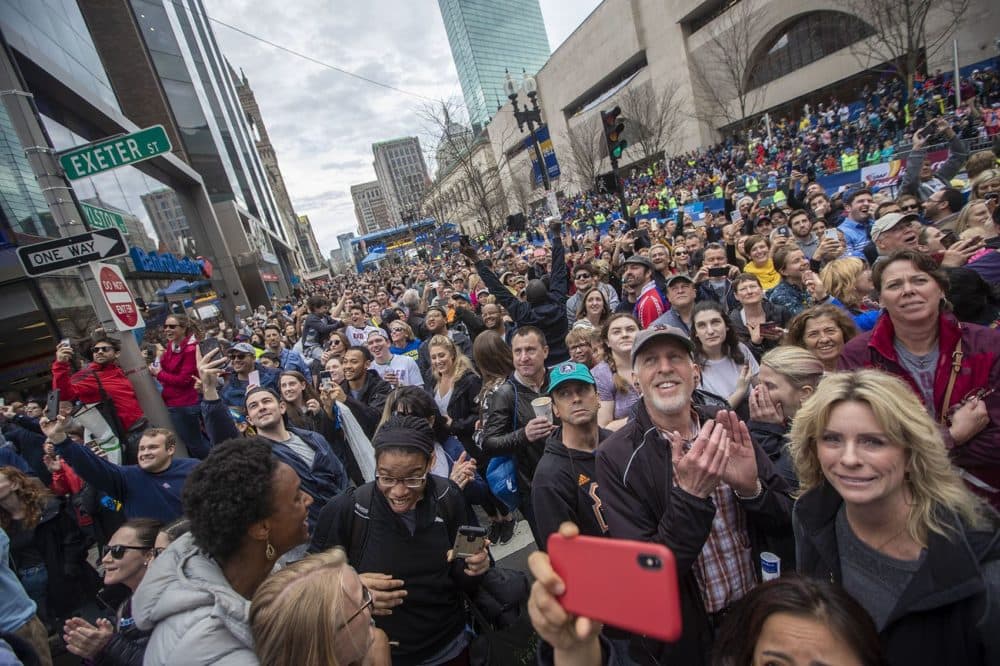
Then after 9 a.m., I'm on one of the press trucks that travel ahead of the runners. It's usually the women's and we get to watch the race from one of the best possible vantage points before we pull onto Boylston Street, speed toward the finish line and pile out to watch the winner. The rest of my day is spent reporting on the race on WBUR. By the end of my day, when I walk to where I live near the course on Beacon Street, the crews are cleaning up the day's debris. I'll be missing all of that routine on Monday.
But more importantly, I'll be missing the things I have seen in two decades of watching the race.
In 2011, Geoffrey Mutai ran what was at the time the world's fastest-ever marathon. He completed the course in 2-hour-3-minutes-and-2 seconds. I was up in the stands near the finish line when he crossed the finish line. I saw the time and could not believe my eyes.
Then two years ago in 2018, the race was run in the worst conditions I have ever seen for a marathon anywhere — pouring rain, howling wind. There were times when those of us on the press truck could not even see the women at the front of the pack. And the women weren't even sure where they stood in the race. Finally, Des Linden emerged as the winner, the first American woman to win the race since 1985. (Editor's note: Read and listen to Linden's Cog commentary here.)
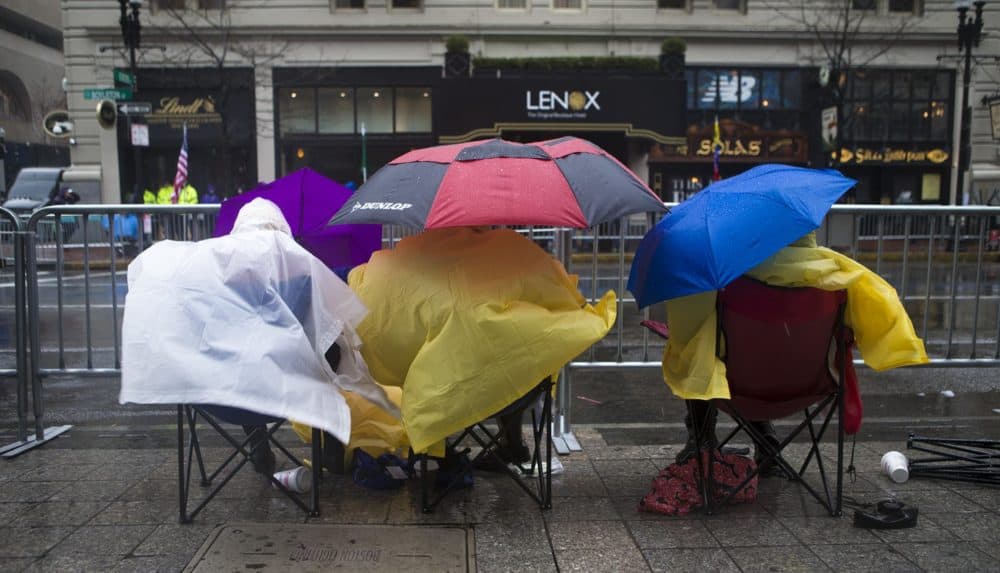
Four years earlier, I was standing a couple of hundred yards past the finish line when Meb Keflezighi won the men's race. He was the first American man to do that since 1983. That was a huge personal achievement, of course, but it was also something shared with the city and everyone who loves the marathon. Because that was the first marathon since the 2013 bombings that killed three people and injured more than 260 others.
Keflezighi ran the race that day with the names of the victims on his bib. He's been loved here ever since.
I'll be missing the things I have seen in two decades of watching the race.
The seventh anniversary of the bombings just passed, without the public events that have marked past anniversaries, because of the social distancing guidelines. I marked my own personal moment of silence at 2:49 p.m., the moment the first bomb exploded on April 15, 2013. The bell at the Old South Church in Copley Square tolled. What happened that day seldom leaves my mind.
When then-President Barack Obama came to Boston for the memorial service after the bombings, he said, "scripture tells us to 'run with endurance the race that is set before us.' Run with endurance the race that is set before us."
There's no race on this Patriots Day and there will be hurdles to overcome in the days, weeks and months ahead. But hopefully, on Monday, September 14, more than 30,000 runners will funnel out of Hopkinton on their way to Boston in the rescheduled 124th edition of the race. They'll be running the race that is set before them. I'll be honored to tell some of their stories, even if it's a few months later than it was supposed to be.
This segment aired on April 20, 2020.
